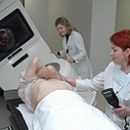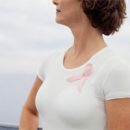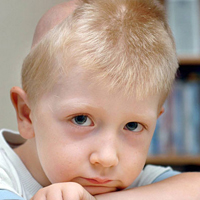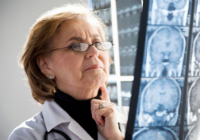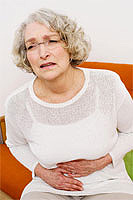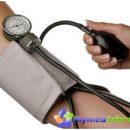What is chemotherapy? How to behave during chemotherapy? How to facilitate the side effect of this method of treatment? Read in this article.
Content
Chemotherapy
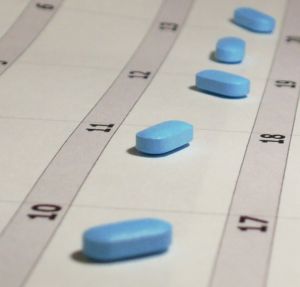 Chemotherapy is a special method of treating or preventing oncological diseases with special drugs that suppress the growth of tumor cells.
Chemotherapy is a special method of treating or preventing oncological diseases with special drugs that suppress the growth of tumor cells.
Chemotherapy does not always lead to complete cure, but allows you to restrain the growth of the tumor, significantly extended the life of the patient and improving its condition.
Chemotherapy is always conducted by an experienced oncologist, the treatment and dose of drugs are selected individually. Medicines can be introduced intravenously, intramuscularly and assigned to tablets.
Complications of chemotherapy (unwanted side effects of drugs) arise often, but most patients are short-lived and weakly expressed.
Be sure to ask your attending physician, what complications are most likely in your case and what can you personally make in order to maximize the manifestations of such complications.
Nausea and vomiting
Nausea and vomiting most often scare you before the start of treatment. The degree and duration of nausea depend on the injected medication, its dose and the administration mode. Modern antiemetic drugs, which are accompanied by treatment, allow most patients not to experience this to. Remember that nausea and vomiting, even if they arose, short-term and never threaten your life.
- Food should be weakly warm, soft, not having a sharp smell.
- Avoid excessively sweet, salted, acute and oily food.
- Avoid sudden smells (spirits, kitchens, smoke).
-
Recommended cool clarified fruit juices without sugar. Do not drink carbonated drinks, or wait for the discharge of gas bubbles.
- You can sometimes suck a piece of lemon or ice.
- Wear loose clothing.
-
Try to distract from unpleasant sensations - Communicate with friends, listen to music, watch TV.
Hair loss (alopecia)
Hair loss (alopecia) is not developing in all patients. The degree of appearance may be different - from easy hair thinning to their complete loss. After completion of chemotherapy, the hair is growing again.
- Use soft shampoos.
- Do not use hair dryers, curling tongs, curlers.
- Short haircut makes hair loss less noticeable.
Stomatitis
Stomatitis - Inflammation of the mucous membrane of the oral cavity. At the same time, redness appear, swelling, soreness sometimes ulcers in the mouth and on the lips.
 Even before the start of chemotherapy, visit the dentist, let him know about the upcoming treatment, keep the oral cavity. When Stomatitis appears, immediately report this to your doctor, he will appoint you the necessary treatment.
Even before the start of chemotherapy, visit the dentist, let him know about the upcoming treatment, keep the oral cavity. When Stomatitis appears, immediately report this to your doctor, he will appoint you the necessary treatment.
-
Teeth should be cleaned only with a soft brush, not traumating gums. Use the rinse recommended by the doctor after each meal.
- Eat only room temperature.
-
Food should be soft, unprazing (baby food, dairy products, eggs, potato mashed potatoes, bananas, baked apples, jelly).
-
Avoid acute, salty, acidic, coarse food. It is not desirable to eat tomatoes and citrus.
-
Lubricate lips with hygienic lipstick or oil.
Diarrhea (diarrhea)
Diarrhea (diarrhea) can occur under the action of some chemotherapy products on the intestinal mucous membrane. Report the start of diarrhea at the attending doctor, it may be necessary to appoint special drugs.
Better eat more often and gradually. Drink a lot of fluids (weakly brewed tea, non-concentrated broth, boiled water) room temperature.
Do not eat products rich in fiber (coarse bread, fresh vegetables, legumes, nuts). Replace their products with low tissue content (white bread, pasta, fermented milk products, boiled eggs, fish, boiled meat, rice).
Avoid coffee, alcoholic beverages, acute, oily, fried food, sweets, carbonated drinks.
Leukocytopenia and thrombocytopenia
The most serious complication of chemotherapy are the drop in the number of leukocytes (leukocytopenia) and platelets (thrombocytopenia).
With leukopenia in the human body, the number of white blood cells protecting the infection is reduced, which can lead to the development of various infectious complications. The doctor will regularly control your blood test.
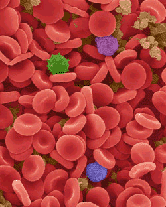 Avoid contact with people who have obvious signs of infectious diseases.
Avoid contact with people who have obvious signs of infectious diseases.
Do not attend the places of a large cluster of people.
Avoid contact with children who have recently been vaccinated.
Try to avoid random household injuries. When cuts appear, use an antiseptic (for example, with green.
With increasing body temperature or any sign of infection (chills, sweating, cough and t.D.) Contact your doctor immediately!
When thrombocytopenia, blood clotting is broken, the risk of bleeding increases, which may occur at the slightest injuries and continue for quite a long time. On the body, bruises may appear without visible reasons, the red rash, there are nasal bleeding and bleeding gums, redness of urine, blend of blood in feces. If any of these signs appear, immediately report this to your attending doctor.
Local complications for the introduction of the drug are rare. When pain appears at the injection site or in the course of the vein, report this medical sister.
Your rule should be the following: The attending physician is available for answering all your questions!

